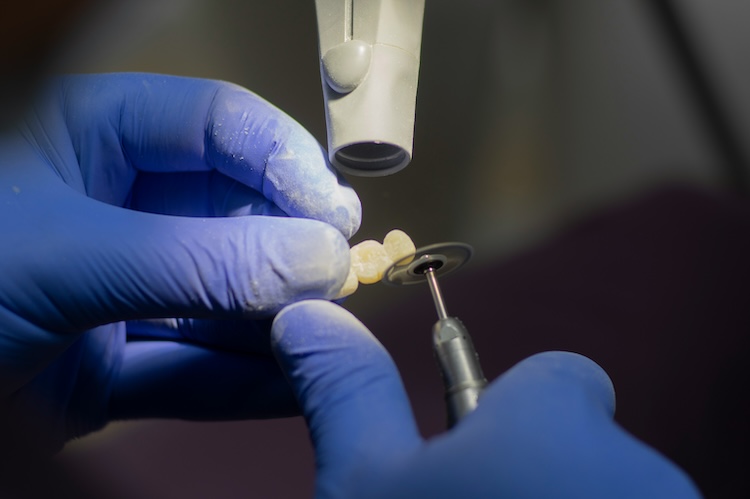Do you wake up with jaw pain and headaches every day? Are your teeth starting to look worn down? You might be dealing with bruxism.
Fortunately, there are various solutions to this problem. The most effective one of these solutions is night guards.
How can dentists effectively address bruxism with night guards, you wonder? That is one of the questions we will answer today as we look closer at bruxism and its treatments.
What Is Bruxism?
Bruxism is among the most common dental problems, characterized by the grinding or clenching of teeth. It affects around 20% of children and 13% of adults and occurs primarily during sleep.
Whether it’s due to stress, a sleep disorder, or excessive alcohol consumption, bruxism can have harmful consequences for your oral and overall health.
If you don’t address bruxism, it can:
- Lead to tooth loss
- Wear down the enamel
- Alter facial appearance
- Affect mental well-being
- Cause jaw pain and clicking
- Cause tooth sensitivity and fractures
- Induce chronic headaches and earaches
- Cause noises, waking you and your partner up at night
Night Guards: An Effective Solution to Bruxism
There are different solutions for addressing bruxism, but the most effective one is night guards. Night guards are dental appliances that can reduce the impact of teeth grinding through several mechanisms.
How Can Night Guards Address Bruxism?

Photo by Shane on Unsplash
Here is how wearing a night guard for clenching can help you beat bruxism.
By Providing a Protective Barrier
When you grind your teeth during sleep, you create friction and put pressure on your teeth, increasing the risk of tooth decay. A night guard will act as a cushion, providing a protective barrier between your upper and lower jaw.
By preventing direct contact between your teeth, the night guard will stop the grinding and reduce the damage caused by bruxism.
By Maintaining Proper Jaw Alignment
Night guards can also reduce the pressure on your temporomandibular joint (TMJ) and help maintain proper jaw alignment.
This effect of night guards will alleviate the common symptoms of bruxism, such as jaw pain and headaches, and help you avoid further TMJ problems.
By Reducing Noise
By cushioning the impact of teeth grinding, night guards can muffle the noise of bruxism. This reduced noise allows you and your partner to get some rest and avoid further sleep disorders.
Different Types of Night Guards

Photo by Elena Mozhvilo on Unsplash
There are different types of night guards for teeth clenching. Let’s look at the most common types.
One-Size-Fits-All Night Guards
These over-the-counter night guards are the most affordable option. However, they may provide the least protection. They typically do not fit properly and are not too comfortable or durable.
Boil-and-Bite Night Guards
Next, there are boil-and-bite night guards you can purchase from pharmacies. You can soften them in hot water and mold them to your teeth.
These night guards offer a better fit than the previous ones but are still not the best option.
Custom-Made Night Guards
Lastly, we have custom-made night guards designed by expert dentists from an impression of your teeth.
These night guards are customized to fit your mouth, providing the most comfort and protection against bruxism. While they may be more expensive, they are worth the price in the long run.
Use Your Night Guards Effectively
Follow these tips to address bruxism effectively with your night guard:
- Wear your night guard consistently every night
- Clean it thoroughly every morning
- Store it in a dry and clean container
- Visit your dentist regularly to examine the effectiveness of the night guard
Other Treatments for Bruxism
Photo by Jonathan Borba on Unsplash
While night guards are the most effective solution for bruxism, they’re not the only one. Here are some other treatments your dentist may recommend for teeth grinding.
Stress Reduction
There is an undeniable connection between stress and dental health. Stress is one of the leading causes of bruxism.
You can reduce teeth grinding during the night by addressing stress and taking steps to unwind before bed. Try meditating or reading a book to calm your mind and reduce your anxiety.
Dietary Modifications
Your bruxism may be due to stimulants such as caffeine or alcohol in your diet. Certain medications like antidepressants can also contribute to this problem.
Your doctor may suggest dietary modifications or alternative medications to address bruxism.
Say Goodbye to Bruxism With Night Guards
You can easily manage bruxism with night guards. Visit a dentist if you’re experiencing any of the symptoms of teeth grinding, and protect your smile before it’s too late.








